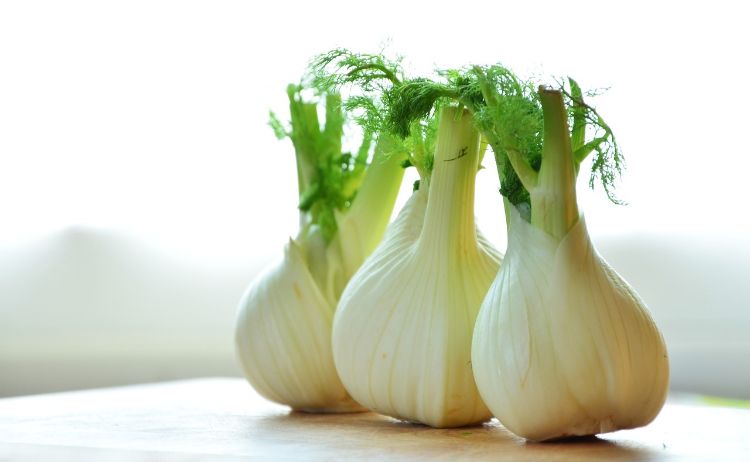Indigestion is more than an upset stomach. In fact, the entire digestive tract can get involved, from the mouth to the esophagus to the small and large intestines and beyond. Additional symptoms of poor digestion include bloating, gas, abdominal pain and issues with bowel movements.
The pancreas, liver and gallbladder also assist with food digestion and passing on needed nutrients. Fiber and probiotics are essential to maintaining good digestion. Combined with plenty of water, fiber helps waste move smoothly through the intestines. Some fiber-rich food contains prebiotics, which help probiotics' effectiveness.
Advertisement
1. Yogurt
Probiotics are classified as a beneficial bacteria, and they affect nerves that control movement in the gut. This moves food along the digestive tract. Yogurt is a fantastic source of lactobacillus, a common probiotic.
Probiotics are classified as a beneficial bacteria, and they affect nerves that control movement in the gut. This moves food along the digestive tract. Yogurt is a fantastic source of lactobacillus, a common probiotic.
2. Fennel
Fennel is high in fiber and can help calm digestive tract muscle spasms. Spasms can lead to cramping, gas and bloating. Try some grilled sliced fennel with a little olive oil and seasonings, or try fennel seed tea to boost fiber in your diet.
Fennel is high in fiber and can help calm digestive tract muscle spasms. Spasms can lead to cramping, gas and bloating. Try some grilled sliced fennel with a little olive oil and seasonings, or try fennel seed tea to boost fiber in your diet.
3. Chia seeds
Chia seeds are high in fiber, but because they absorb moisture, do not eat them dry. Dry seeds can expand in the esophagus and cause a blockage. Soak chia seeds until they expand, then eat them.
Chia seeds are high in fiber, but because they absorb moisture, do not eat them dry. Dry seeds can expand in the esophagus and cause a blockage. Soak chia seeds until they expand, then eat them.
4. Papaya
Papaya contains an enzyme called papain. Papain helps to break down protein fibers, and some studies show it aids with bowel movement problems.
Papaya contains an enzyme called papain. Papain helps to break down protein fibers, and some studies show it aids with bowel movement problems.
5. Whole grains
Whole grains such as oats and quinoa are high in fiber, which helps with bowel movements. Read labels carefully because whole wheat is not the same as whole grain. Whole grains are not separated; they contain the entirety of the kernel. Whole wheat may be processed.
Whole grains such as oats and quinoa are high in fiber, which helps with bowel movements. Read labels carefully because whole wheat is not the same as whole grain. Whole grains are not separated; they contain the entirety of the kernel. Whole wheat may be processed.
6. Ginger
Eastern medicine uses ginger to help with digestive issues, and it is quite effective. In addition to aiding digestion, ginger eases nausea, which is why drinking ginger ale often settles an upset stomach.
Eastern medicine uses ginger to help with digestive issues, and it is quite effective. In addition to aiding digestion, ginger eases nausea, which is why drinking ginger ale often settles an upset stomach.
7. Green vegetables
Dark-green vegetables such as broccoli and spinach contain fiber and magnesium. Magnesium can help with bowel movement issues, which is why milk of magnesia is sold as a remedy for constipation and excessive stomach acid.
Dark-green vegetables such as broccoli and spinach contain fiber and magnesium. Magnesium can help with bowel movement issues, which is why milk of magnesia is sold as a remedy for constipation and excessive stomach acid.
8. Beets
Beets are high in fiber, which aids probiotics with digestion. Roasted beets are a tasty way to prepare this root vegetable. Use fresh beets whenever possible.
Beets are high in fiber, which aids probiotics with digestion. Roasted beets are a tasty way to prepare this root vegetable. Use fresh beets whenever possible.
9. Apples
Apples with skins contain pectin, which is a fiber found in fruit. Pectin gets broken down in the colon and adds to your body's stool, which can help with constipation.
Apples with skins contain pectin, which is a fiber found in fruit. Pectin gets broken down in the colon and adds to your body's stool, which can help with constipation.
10. Kombucha
A fermented tea, kombucha originated in China thousands of years ago. This tea contains a high amount of probiotics. Kombucha needs to be properly prepared so do not attempt to make it yourself. If made incorrectly, you may experience adverse side effects such as an upset stomach after drinking it.
A fermented tea, kombucha originated in China thousands of years ago. This tea contains a high amount of probiotics. Kombucha needs to be properly prepared so do not attempt to make it yourself. If made incorrectly, you may experience adverse side effects such as an upset stomach after drinking it.
Advertisement

Shutterstock










